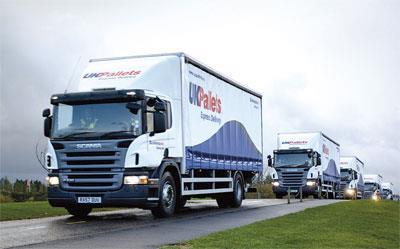
Back in July 2003 what was once Business Post, but is now UK Mail Group, bought the Weaver Pallet Network. In its 2004 results that company disclosed that UK Pallets, as it was quickly renamed, was the group’s “most significant purchase to date”.
Fast-forward a year to the UK Mail Group’s 2005 results, which were still under the Business Post banner, and despite turnover growth of more than 16% to £23.1m (over eleven trading months) there was the admission that this had “disappointed the board”.
Arguably UK Pallets has been disappointing ever since.
Too harsh? As one of the nine UK networks, UK Pallets has been operating in a market sector that has seen pallet volumes (amongst the Association of Pallet Network's seven members) increase by 30% since 2007 to reach 16 million last year.
UK Pallets has never been a member of the APN (on a side note Pall-Ex left the association last year too), but it is accepted that pallet networks have been a general success story since inception, especially in the recent recessionary environment.
While that’s not to say that there isn’t an issue with declining profitability within the networks affecting individual hauliers, it suggests a market sector taking an ever larger share of domestic haulage.
Against this backdrop UK Pallets has, at best, stood still with a turnover of £29.1m in 2007 - peaking at a high of £30.8m in 2009 before becoming pretty static in recent years. 2013’s newly published results reveal a 0.7% decline year-on-year to £28m. Worse, operating profit which has broadly speaking bumped around the £1.5m to £2m mark during the same six-year period, collapsed, dropping 63.8% to £800,000. Parent UK Mail Group made a pre-tax profit £17.8m for the year ended 31 March 2013 (2011/12: £15.1m) by way of comparison.
Action has been taken with a new MD installed and the gaps in the network’s coverage plugged, but the statement contained within yesterday’s results that “we remain convinced that this business can be successful in a market with good long term growth prospects”, sounds, after all these years, more like a plea than a promise.











